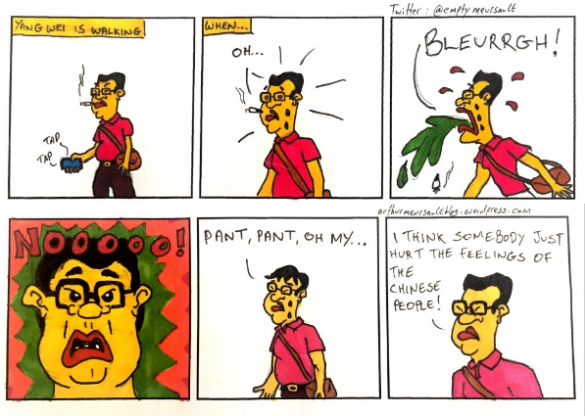One thing I revel in about the English language is the huge number of loanwords it has: French, Latin, Greek, Native American, Arabic, Persian, Turkish, Kurdish, Sanskrit, Hindi, Urdu, Bengali, Tamil, Russian, German, Spanish, Italian, Irish, Swedish, Dutch, Danish, Norwegian, Finnish, Japanese, Cantonese, Mandarin, Maori, Hebrew, Yiddish, Afrikaans, Zulu, Swahili, and so on and on and on. English has words from more than 350 languages, and they amount to 80% of our total vocabulary. (source) Not to worry, however, that English will lose its innate identity, since around 70 % of words in a typical text derive from Old English. (source)
I've also long admired Japanese for its rich assemblage of foreign words, perhaps next to English in having the largest proportion of borrowings. That's quite the opposite of written Sinitic, which has relatively few recognizable foreign words for a major language. I attribute the difference to Japan having the easy ability to borrow words phonetically via kana and rōmaji ローマ字 ("Roman letters"), whereas the morphosyllabic Sinoglyphic script has not yet developed an officially sanctioned standard for transcribing loanwords directly into Chinese texts. Informally (on the internet, in private correspondence, etc.), however, writing in China is gradually moving toward a digraphia of Sinoglyphs and the Roman alphabet. (See the second part of "Selected readings" below.)
Read the rest of this entry »
